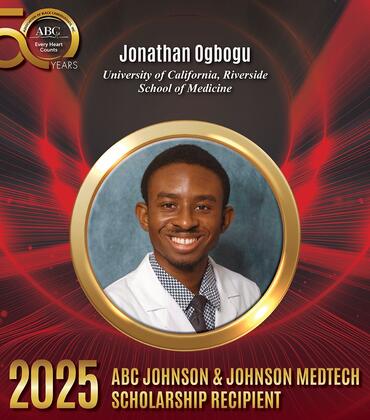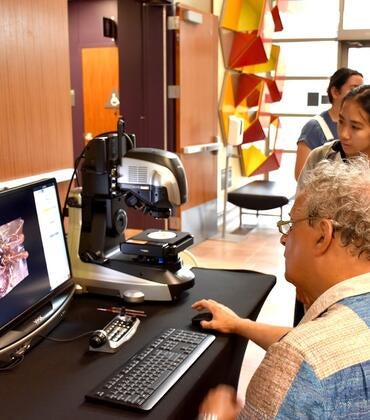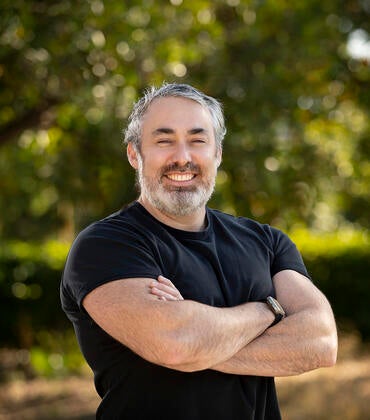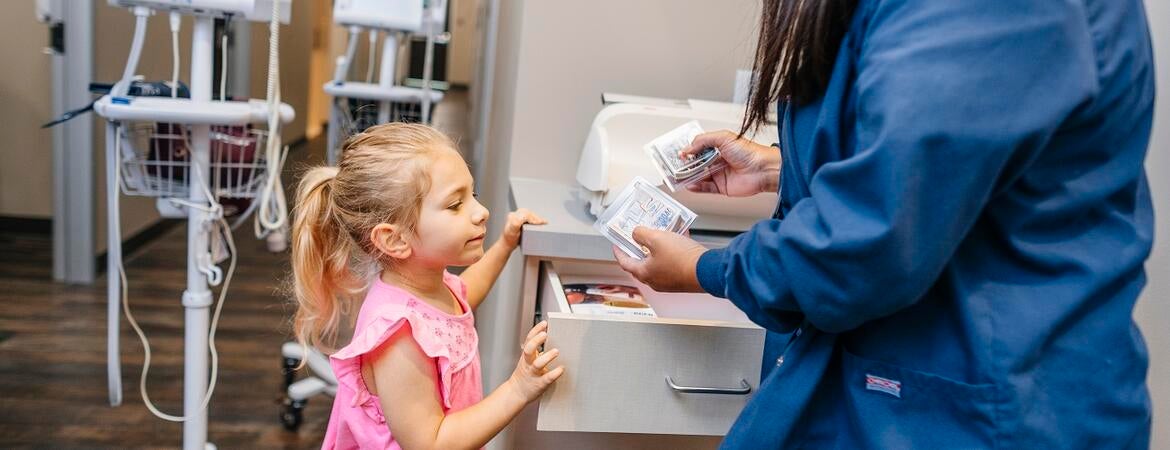
Even in the best of times, parenting can be a challenge. But for parents who live with chronic illnesses such as diabetes, heart disease and more, those challenges can be magnified, causing complications that can make things even more difficult for parent and child alike.

A team of researchers from the UCR School of Medicine, led by Adwoa Osei, M.D., will use a grant of $29,000 from the Riverside Community Health Foundation's Fred and Eva Stebler Trust to work with parents living with chronic illnesses to identify the challenges faced by both them and their children, and to develop strength-based, culturally sensitive and trauma sensitive tools to guide them in the parenting of their children.
"We are targeting three groups: the children, the parents, and the health professionals. We hope to develop a screening algorithm or guidelines for physicians to use when somebody with a chronic illness comes in so they can quickly get an idea of how this disease is impacting their parenting life and impacting the child's life," Osei said.
Through semi-structured interviews with the parents and using validated tools to screen for caregiver disease burden and childhood socioemotional challenges, Osei hopes to better understand the nature of the challenges the parents and the children are facing, and use that information to develop algorithms that can help physicians identify these issues before they become disruptive. From there, her team wants to develop strength-based tools for physicians and parents that can help them mitigate or prevent some of the problems before they become severe.
"Human beings who are under a lot of health-related stress are in survival mode and there is the potential to become overwhelmed, to lash out or be very short with them," Osei said. "A strength-based approach incorporates elements of positive parenting, providing parents with tools and strategies to create routine, regulate emotions, restore hope, create safety and build stable, nurturing relationships . When children feel safe, they learn, and they are more likely to develop positive behaviors as well."
What's more, Osei believes that the stress that children suffer can have a rebound effect on the parents, further complicating their chronic illness.
"The stress affecting the child then rebounds and affects the parents, making things more challenging for everyone," she said.
Osei said she became intrigued about the topic as she worked with children and their families as a pediatrician with UCR Health.
"There is anxiety and fear about the possibility of losing their parents. Some children also have to assume caregiver roles for their parents and this could be overwhelming. They begin to internalize or externalize this fear, overwhelm and anxiety and it starts to affect their learning, their relationships," she said. "I've seen it happen, but I don't know the extent to which it happens, and I don't know at what point it begins. Is it when the child becomes aware of the caregiver diagnosis ? Is it when the parent has a documented impairment, or when the parent is stressed by the chronic illness?"
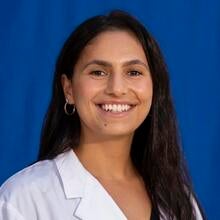
Osei said she was also inspired by third-year medical student Shamieh Banihani, who received a UCR School of Medicine Dean's Research Innovation Grant for a smaller scale study that involves medical students and undergraduate volunteers reaching out to patients at the San Bernardino and Riverside Free Clinics.
"She came to me asking about how these things affect the development of children. As we were brainstorming, this idea came out. She wrote up the proposal and she's talking to people now, setting up a baseline before we do this on a wider scale," Osei said.
"Seeing all of the social factors that patients have to overcome while trying to manage their health and caring for their children has been very humbling," Banihani said. "Seeing small children in the hospital visiting their sick parents or waiting with them in the emergency department late into the night made me think about how that might affect them. Lots of vulnerable populations, especially children, cannot control the environment or circumstances they are born into, and I have learned that we can use medicine as a conduit for addressing these factors."
"With everything we know about how toxic stress can impact our physiology and perhaps ultimately drive the outcome of our lives, learning about and addressing these social barriers to health might allow us to advocate on behalf of vulnerable children, or all children, and give them a fighting chance to live out their fullest potentials," she added. "Dr. Osei, as a pediatrician and educator, has played a huge role in instilling that sense of duty and awareness into us medical students."
The researchers are using semi-structured interviews with parents to get their perspectives.
"We want to hear the stories, hear from those parents about the diagnosis and how it impacts their life and parenting. This is where being culturally sensitive comes in, because it is going to mean different things to different people depending on what their value system is," Osei said.
"We have undergrads from UCR who have joined the project as well," Banihani added. "They are working on site at the clinics, meeting and talking with patients, and learning about the nuances of being a parent or caretaker while battling these illnesses, and how that may impact their children."
The Riverside Community Health Foundation's Stebler Trust is a designated fund restricted for use in the treatment and care of low-income and indigent minors under the age of 18 who are residents of the County of Riverside who are not otherwise qualified or eligible to receive treatment and care of the County of Riverside and/or the State of California.
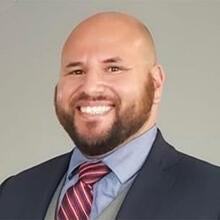
"Riverside County, and Inland Southern California, have a high prevalence of these chronic medical conditions compared with the rest of the state and nation, so the impact of this research could be significant to our local community," Osei said.
Daniel Novak, Ph.D., an assistant professor in the Department of Social Medicine, Population, and Public Health and the director of scholarly activities in the School of Medicine, is co-PI on the project, titled "The Impact of a Caregiver’s Chronic Illness on Psychosocial Functioning in Childhood: Turning Adversity into a Foundation for Resiliency."
“Dr. Osei and Shamieh have developed exactly the kind of innovative, collaborative research partnership between students and faculty that the UCR School of Medicine is thrilled to support. Working with Shamieh and Dr. Osei to refine this idea through the Dean’s Research Innovation Fund process, then working with Dr. Osei to grow it into an externally supported grant has been really inspiring. I look forward to helping them develop and disseminate their important research and to doing our part to improve the lives of the people of the IE,” Novak said.
